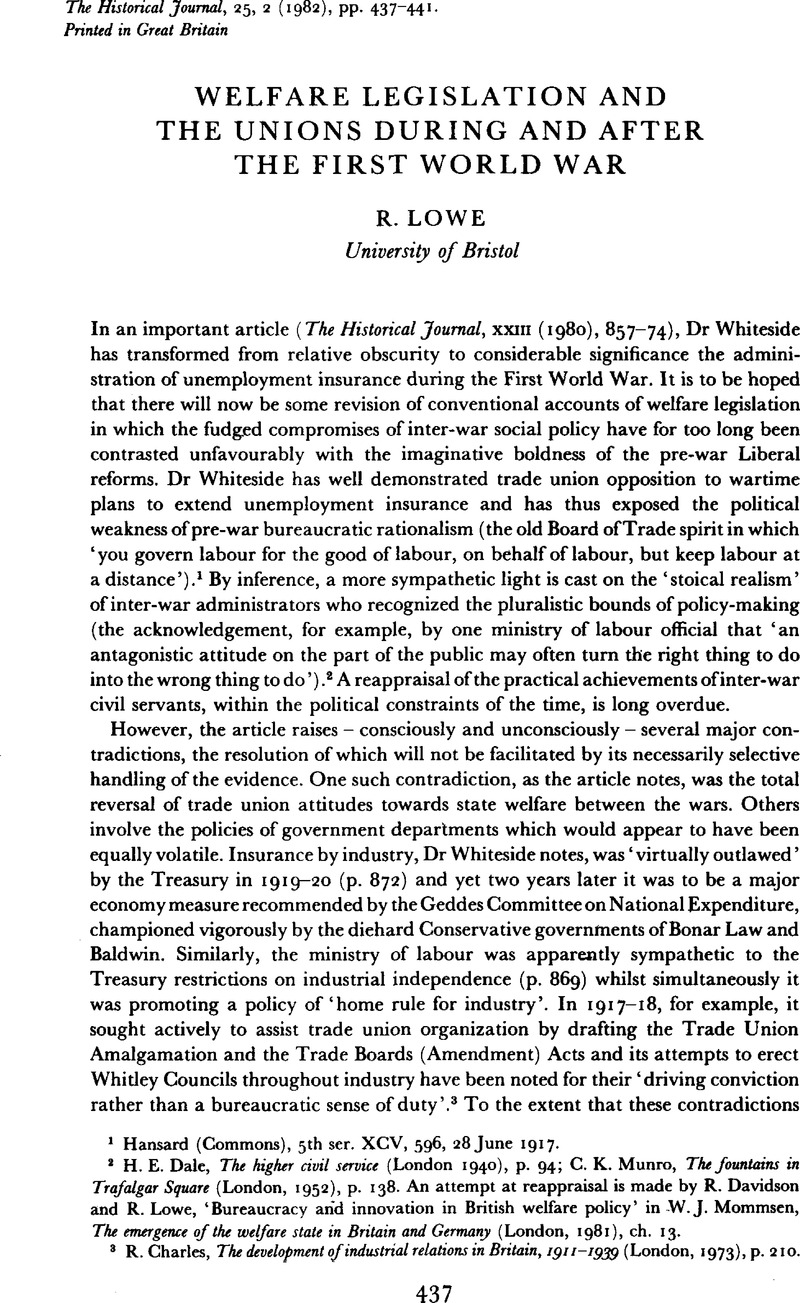Published online by Cambridge University Press: 11 February 2009

1 Hansard (Commons), 5th ser. XCV, 596, 28 June 1917.
2 Dale, H. E., The higher civil service (London 1940), p. 94Google Scholar; Munro, C. K., The fountains in Trafalgar Square (London, 1952), p. 138Google Scholar. An attempt at reappraisal is made by R. Davidson and R. Lowe, ‘Bureaucracy arid innovation in British welfare policy’ in Mommsen, W. J., The emergence of the welfare state in Britain and Germany (London, 1981), ch. 13.Google Scholar
3 Charles, R., The development of industrial relations in Britain, 1911–1939 (London, 1973), p. 210.Google Scholar
4 Lab 2/454/ML 2574/8, P.R.O.
5 It is similarly misleading to equate (p. 869) the views of the Labour Resettlement Committee (an advisory body consisting in the majority of employers and trade unionists) with official policy and to quote departmental discussions on the compulsory notification of vacancies to employment exchanges (p. 872) without making the qualification that it was never considered to be politically practical. Departmental records can be made to support any argument when used too selectively.
6 The whole paragraph is based on TI/12594/23571, P.R.O.
7 The definition of policies is Auckland Geddes's in his famous reconstruction memorandum, Cab 24/75 GT6880, P.R.O.
8 . TI/12594/23571, P.R.O. Upcott's remarks were made in May 1919, Bradbury's in November 1918, Leith-Ross's in August 1918. For evidence that these prejudices remained throughout the 1920s see the chancellor's letter to the minister of labour on unemployment insurance on 20 March 1927: ‘the state should disengage itself to an increasing extent from what is after all primarily a trade matter’ (Baldwin papers, 7/388). The Treasury's conversion to the principle of insurance by industry was of course not unrelated to its later belief that it might be the cheapest alternative.
9 Lab 2/212/ML 1200/2, P.R.O.
10 Pin 7/13, P.R.O. This reference covers the following quotation.
11 See Jones, G. Stedman, ‘Working-class culture and working-class politics in London, 1870–1900’, Journal of Social History (1974), p. 473Google Scholar; McKibbin, R. I., ’ Working-class gambling in Britain 1880–1939’, Past and Present, 82 (1979), 162. Enforced thrift to ensure against an abstract risk in the distant future was the very antithesis of working-class cultural values.Google Scholar